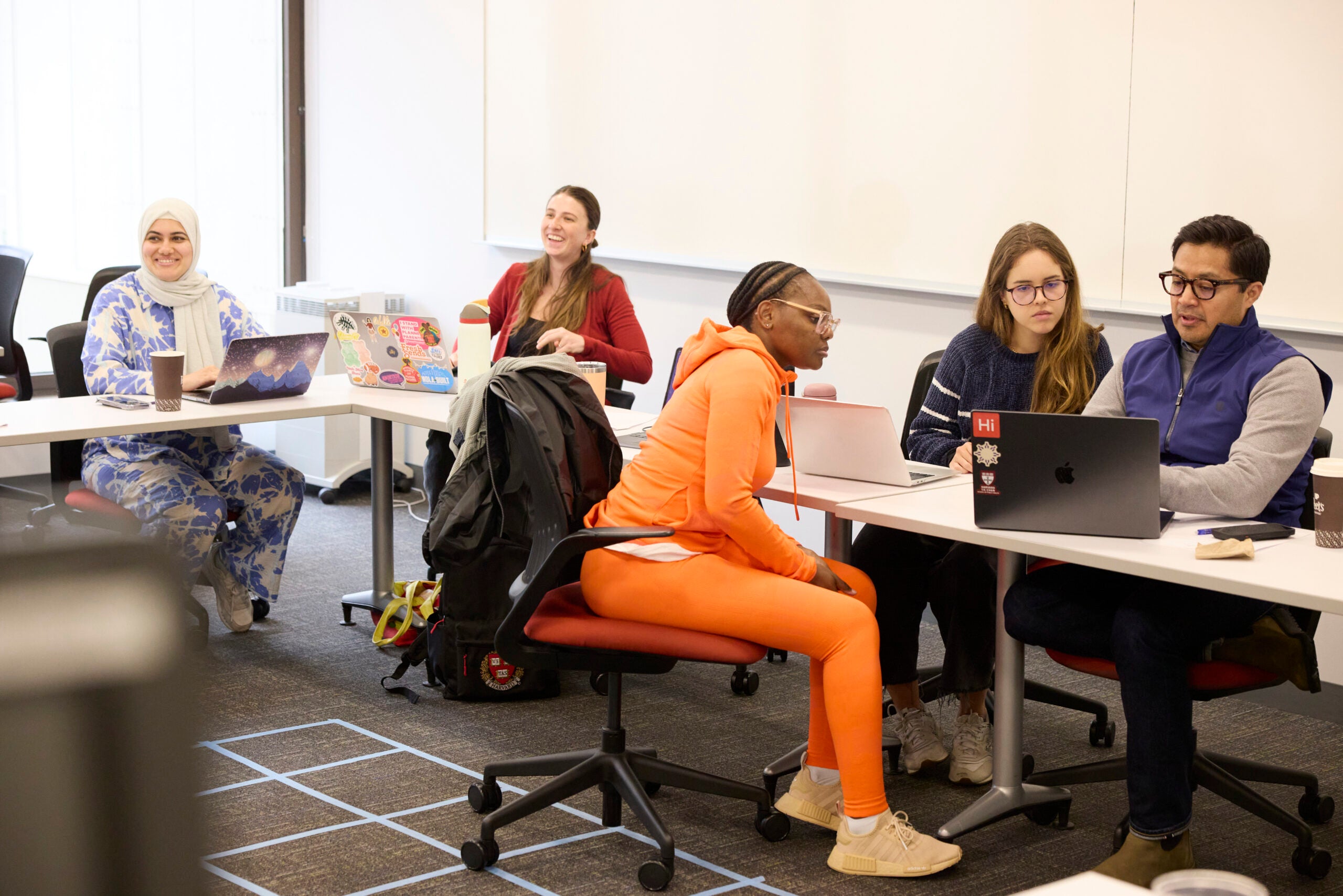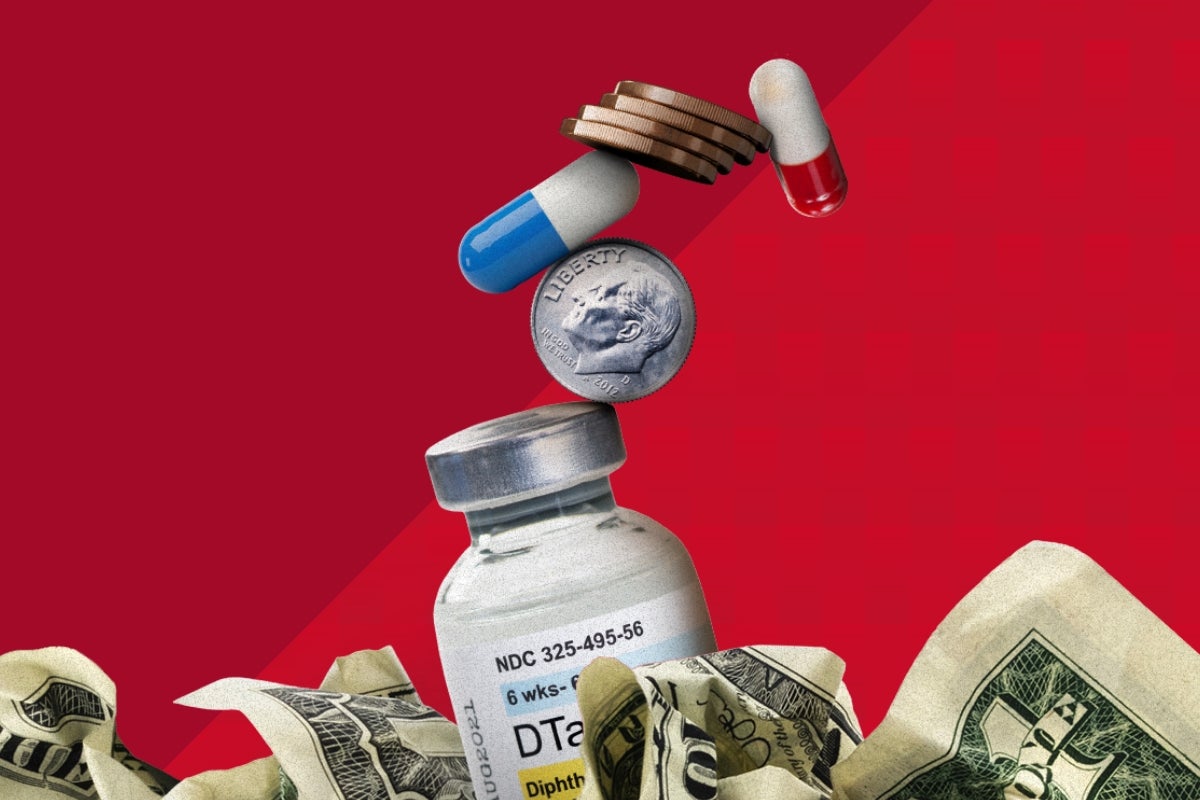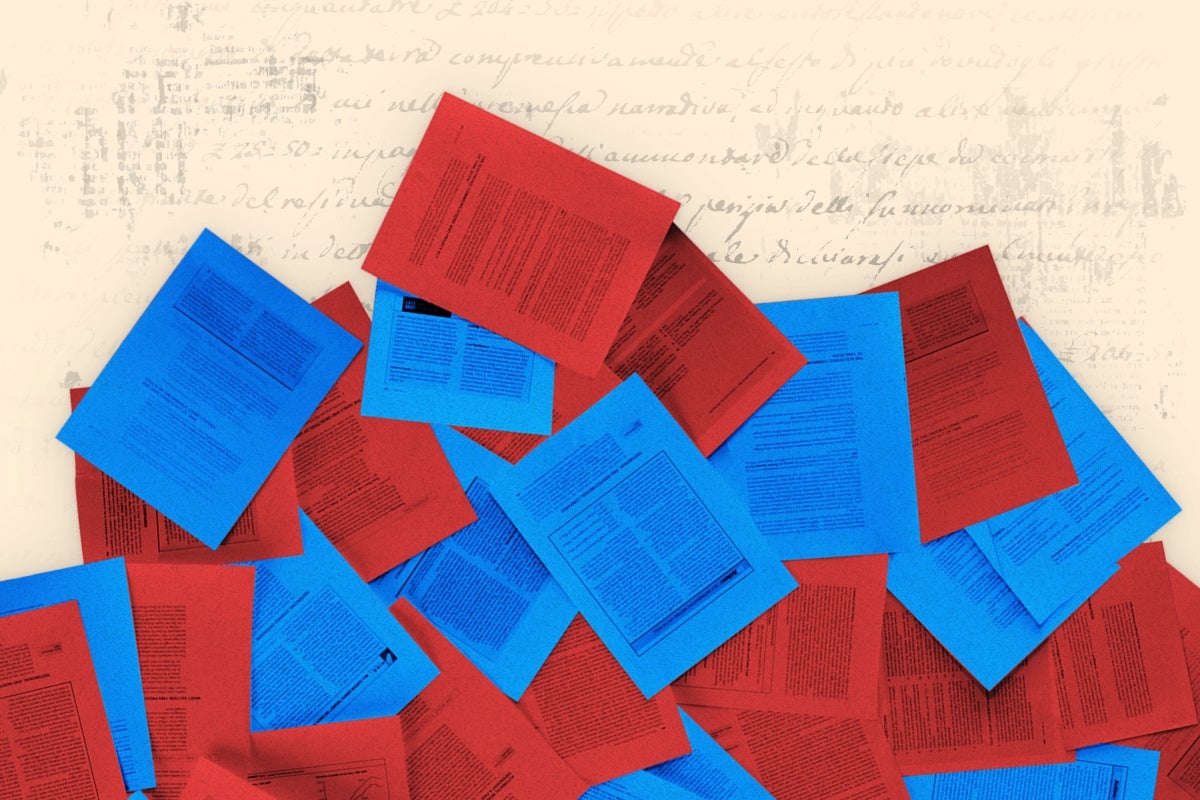At inaugural ‘Camp Cura,’ students tackle controversial health issues with an open mind

In early 2025, Michaela Kerrissey was at her desk reading about the debate over the origins of COVID-19, weighing the lab leak theory against the natural origin theory and marveling at the tenor of the disagreement.
“Some well-respected virologists have described that debate as the most toxic one they’ve ever been part of,” said Kerrissey, associate professor of management at Harvard T.H. Chan School of Public Health. “We know that the most durable public health outcomes come from high-quality information and good conversations. But in recent years, the pace of new scientific information has sped up and the quality of discourse has declined. Conversation is being driven by extremes, and there’s not a lot of middle space for reasoned complexity. It’s the case in the U.S. generally right now, and it’s especially pernicious in public health.”
Kerrissey, whose research centers on leadership, teamwork, and psychological safety in health organizations, asked herself how she could better prepare students to work in public health in this increasingly volatile, polarized world. What kind of training would prepare the next generation of public health leaders to have constructive conversations? How could they practice flexible thinking, constantly updating their knowledge of health issues and—when needed—revising their stances?
From these questions, Kerrissey conceived of Camp Cura: a week-long summer learning intensive during which Harvard Chan students would work in groups to deeply research and discuss some of the day’s most hotly debated health topics. Eleven students gathered for the inaugural program, held Aug. 18-22, ready to learn how to communicate through controversy—and even change their minds.
Curiosity and care
Kerrissey named Camp Cura after the Latin root for “curiosity” and “care”—two qualities she says are often missing from today’s discourse around health issues, and ones she looked for in students’ applications to attend the program. A mix of current and incoming students, postdocs, and fellows responded to Kerrissey’s call for “curious, thoughtful people who care about communication, collaboration, and making public health smart and open.”
“We unfortunately had to turn down some applicants to keep the inaugural pilot small,” Kerrissey said. “There was a lot of interest.”
Sami Bailey, MPH ’26, said she was motivated to join Camp Cura after observing vaccine skepticism cut across socioeconomic lines in her rural eastern Washington hometown and in her adopted city of Seattle.
“People from very different walks of life are meeting at the same point of mistrust in vaccines, and I haven’t known what to say to them,” Bailey said. “I wanted to learn how to communicate about these issues that feel hard to talk about. Because they’re not going to get less controversial.”
Will Sayre, MPH ’26, a medical student from the University of South Florida, applied to the program to help prepare him to interact with patients trying to make sense of competing health information, or whose faith in public health and medicine is waning.
“Across the country, there’s an ongoing erosion of trust in public health. I see it all the time at the Florida hospitals where I’m completing my training—patients are increasingly skeptical of what doctors and public health institutions recommend,” Sayre said. “I saw Camp Cura as an opportunity to immerse myself in these thorny discussions, especially in areas where the evidence is still developing, and uncertainty can open the door for political agendas or misinformation to take over.”
Betzael Bravo, MPH ’26, not only participated in Camp Cura, but also helped organize it and served as its head teaching fellow.
“As a future public health leader focused on the advancement of women’s health care, I recognize the importance of making the effort to learn, understand, and address all sides of contentious topics in order to effectively communicate to the public and enable people to make informed decisions,” he said. “That’s why I jumped at the opportunity to help Dr. Kerrissey build Camp Cura from the ground up.”
It’s not enough anymore to just know facts. Today’s leaders need to be able to discern and make sense of competing narratives and be comfortable changing their minds.
Michaela Kerrissey, associate professor of management
“Lean in and listen more”
Before arriving, campers voted on the topics they wanted to research, settling on autism rates, use of artificial intelligence (AI) in health care, microplastics, and GLP-1s (the popular weight loss drugs, such as Ozempic). Each day, groups worked together to research and discuss every facet of their topic: What are microplastics? What is known and unknown about autism, and where is the science strong and weak? What are the key disagreements about GLP-1 usage, and where do these disputes originate from? What should we be looking for from future research on how AI is impacting health care? And what’s a good framework to guide how the public should think about each of these issues?
“It’s not enough anymore to just know facts,” Kerrissey said. “Today’s leaders need to be able to discern and make sense of competing narratives and be comfortable changing their minds. The way to develop these skillsets is first to do them—over and over and over again—and second, to reflect on the experience. This is what we wanted campers to practice.”
At the end of the week, groups presented their research, recommendations, and reflections to their peers and a panel of health care industry leaders.
Bailey said this work left her feeling more equipped to have hard conversations and lead with empathy.
“I’m arriving at Harvard Chan School with a background in political campaigns, where there’s very little meeting in the middle,” she said. “What I’ve realized at Camp Cura is, as one of our panelists brilliantly summarized, empathy isn’t an endorsement. I don’t need to be so partisan in the way I approach public health. Instead of being reactive, I can lean in and listen more, and realize that a lot of the time, there’s validity to—or at least meaning behind—every side of an issue.”
Each day also featured presentations from experts in health information and communication. Pedja Stojicic, adjunct lecturer on health policy and management, discussed “narrative leadership” and the importance of incorporating storytelling into public health communications. The Center for Health Communication’s Dick Tofel and Amanda Yarnell spoke about the power of journalism and how to harness social media to disseminate quality health information. Ankur Pandya, associate professor of health decision science, spoke about making data-informed decisions. And from outside Harvard Chan School, a selection of health care industry leaders shared their perspectives on health communications.
“Dr. Stojicic’s talk really resonated with me,” Sayre said. “Data is key for establishing scientific consensus and policy, but people really live through relationships and stories, much more so than numbers. It got me thinking about how, as a future pediatrician, I can use storytelling to address patient concerns rather than through statistics.”
Learning across differences
Kerrissey called the week “fantastic,” noting that she learned as much as anyone.
“I walked out of campers’ final presentations having updated my own prior understandings about all of the issues they covered,” she said. “That’s a rare gift.”
She hopes it becomes less rare. She said Camp Cura fits squarely within Harvard Chan School’s Learning and Engaging Across Differences (LEAD) initiative, and hopes to continue and expand the program.
“Camp Cura harnesses some of the excellent work already being done at Harvard Chan School around constructive engagement and channels it into an educational program,” Kerrissey said. “The campers come together to embody the idea that, at our School and in the broader field of public health, disagreement can happen without being unkind. And on the other side of the discomfort that often accompanies disagreement, can be joy—the joy of updating your own assumptions and learning something new.”


